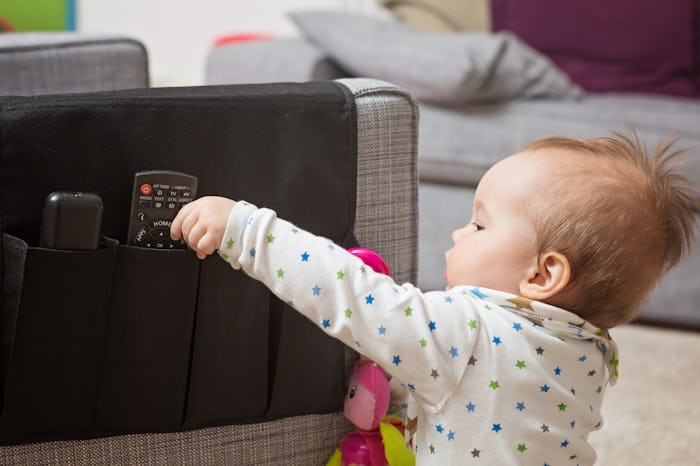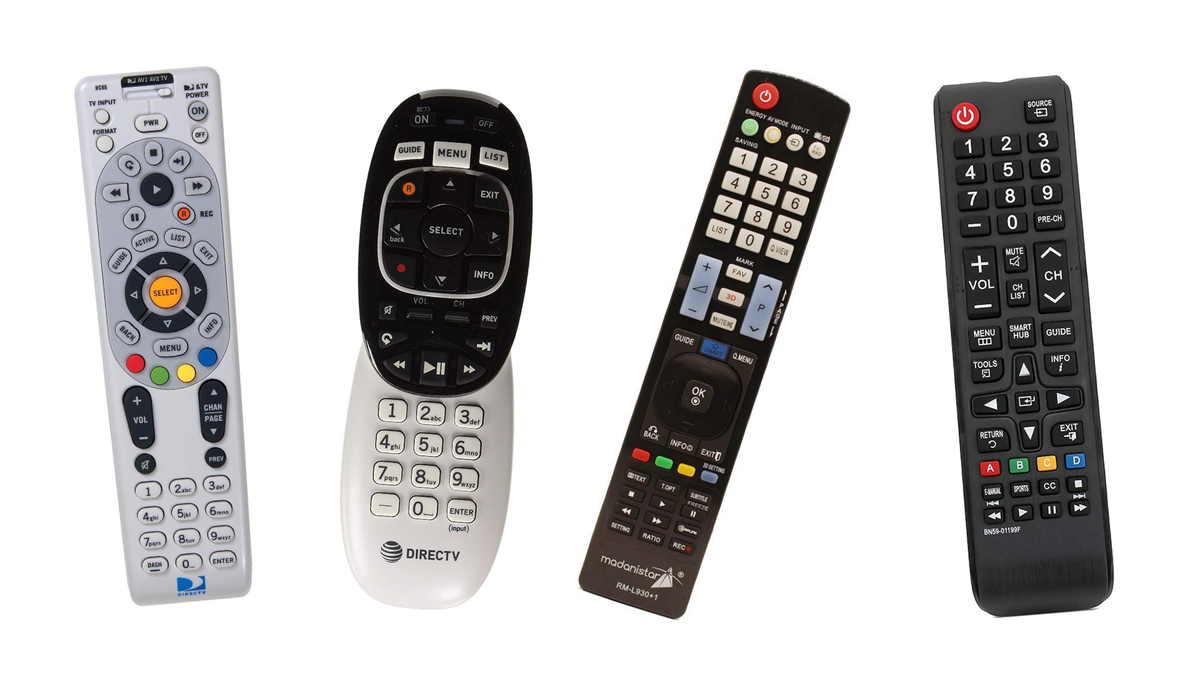Life

Here's Why Your Baby Is Straight-Up *Obsessed* With Your Remote
For several years, my remote control lived on a high shelf, away from the prying eyes and mouth of my child. I don't know what it was about the buttoned box, but my son was completely and totally obsessed with it. It's a simple instrument: a sleek, long rectangle with myriad buttons that lights up and makes magic happen in the television. But apart from its usefulness, I don't understand what makes it so special. Why do babies love the remote, often more than their own toys?
The internet is filled with videos of children being completely blown away by the power of the remote control. It's pretty adorable to watch. In the beginning, it is likely the simple rote learning pleasure of pressing the buttons over and over again, maybe they light up, maybe they vibrate, but it's a satisfying way for babies to occupy their time, noted LifeHacker. As children get a little bit older, and can understand cause and effect, things like changing channels and raising the volume become interesting to them.
Seriously, if they love Peppa Pig at normal volume, imagine how much more fun they'll have splashing in muddy puddles when the volume blasts them into the sofa.

It turns out that there is a perfectly reasonable scientific explanation for why kids love the remote control. The University of Saskatchewan wrote that toys (or non-toys, as it were) like these are multifaceted for the children. They provide differing stimulus appropriate for different stages of development. In the beginning, they're just fun blocks with buttons to jam and little lights. As the kids get older, they become more and their significance becomes deeper. They teach children how the world around them works, and how to manipulate a rapidly advancing digital environment. They're not only modeling the behavior they see in you, but affecting their own experience via the magic remote.
My son loved to smash the remote and run it under his toes, and mouth it for all he was worth. And he was very sneaky at finding it. If I didn't watch him closely, one minute, HGTV would be showing me the three houses that a closet organizer and professional scissor painter were considering in the Bay Area for $1.5m, and the next minute, I'd be accosted with the Mickey Mouse Clubhouse theme song. All these years later, and I still don't know if they chose the bungalow, condo, or the midcentury ranch. It's very frustrating.
It wasn't until I bought him his own remote control toy that he stopped stealing the real one. Now that he's 11, he's back to stealing the real one, and the shows are much more annoying.
Researchers at Topics in Early Childhood Special Education noted that the type of pretend play that is fostered by your child's fascination with things like your keys or the remote are crucial in developing their play skills. They wrote, "...whereas dress-up clothes, vehicles, and dolls are associated with sociodramatic play. Realistic toys are more conducive to facilitating pretend play in young children than abstract toys; however, with increasing age, less structured, more abstract toys may encourage pretense activities."
So, why do babies love the remote control? Because you love it, they see you use it, and it eventually becomes a vehicle for their imagination. It's a portal to a world they are just now learning how to navigate, and the remote becomes a prop in this education. Plus, there are all of those delicious buttons. But be careful, remotes are choking hazards, and there is real danger associated with swallowing batteries. Thankfully, there are a wealth of good, fake remote toys on the market that are safe, and won't change your channel at a crucial moment.